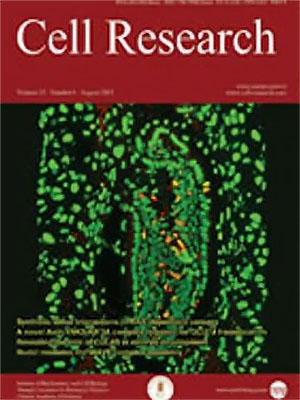
Volume 15, No 4, Apr 2005
ISSN: 1001-0602
EISSN: 1748-7838 2018
impact factor 17.848*
(Clarivate Analytics, 2019)
Volume 15 Issue 4, April 2005: 237-246
REVIEWS
The role of epigenetic inactivation of 14-3-3δ in human cancer
Dmitri LODYGIN, Heiko HERMEKING*
Molecular Oncology, Max-Planck Institute of Biochemistry, Am Klopferspitz 18, Martinsried/Munich, Germany
Correspondence: Heiko Hermeking(herme@biochem.mpg.de)
Cancer cells show characteristic alterations in DNA methylation patterns. Aberrant CpG methylation of specific promoters results in inactivation of tumor suppressor genes and therefore plays an important role in carcinogenesis. The p53-regulated gene 14-3-3δ undergoes frequent epigenetic silencing in several types of cancer, including carcinoma of the breast, prostate, and skin, suggesting that the loss of 14-3-3δ expression may be causally involved in tumor progression. Functional studies demonstrated that 14-3-3δ is involved in cell-cycle control and prevents the accumulation of chromosomal damage. The recent identification of novel 14-3-3δ-associated proteins by a targeted proteomics approach implies that 14-3-3δ regulates diverse cellular processes, which may become deregulated after silencing of 14-3-3δ expression in cancer cells.
FULL TEXT | PDF
Browse 2104


